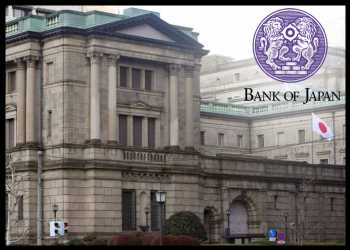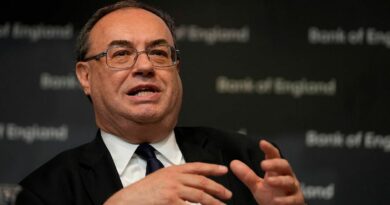Japan Govt Approaches Masayoshi Amamiya For BoJ Governor: Nikkei
The Japanese government approached the Bank of Japan Deputy Governor Masayoshi Amamiya to succeed Haruhiko Kuroda as the central bank governor, the Nikkei reported Monday, citing people familiar with the matter.
The Nikkei news sent the yen tumbling to more than a three-week low against the dollar. However, a Japanese government spokesperson later refuted the Nikkei report, Bloomberg News said.
Elsewhere, Finance Minister Shunichi Suzuki denied any knowledge of the nomination of Amamiya.
Amamiya is a widely seen as a continuity candidate as he is expected to stick with the BoJ’s ultra-loose monetary policy stance that the incumbent Haruhiko Kuroda presided over for a decade.
The 67-year old joined the Bank of Japan in 1979 and has been the deputy governor since 2018.
BoJ Governor Kuroda’s current five-year term ends on April 8. He had first become the central bank chief in 2013.
His two deputies, Amamiya and Masazumi Wakatabe, are set to step down on March 19.
Read More: Japanese Govt. To Present Nominees For BoJ Top Jobs On February 10
Amamiya was key in drawing up monetary stimulus measures under Kuroda’s term and is widely seen as the most dovish among other contenders, such as the former deputy governors Hiroshi Nakaso and Hirohide Yamaguchi, for the top job at the central bank.
On Friday, Nakaso announced that he accepted an Asia-Pacific Economic Cooperation, or APEC, advisory council post. It is unclear if it affects his chances in the race to become the next BoJ Governor.
Japanese media reported in January that Prime Minister Fumio Kishida’s government will present the nominations for the new BoJ Governor and two deputy chiefs to the parliament Diet this month.
Both houses of the parliament have to approve the nominations, which should be a smooth sailing as the ruling coalition enjoys strong majority.
Inflation hit a 41- year high of 4 percent in December, which is double the BoJ target of 2 percent. The rate stayed above the target for the ninth straight month.
Read more: Japan Inflation Hits 41-Year High On Food, Energy Prices
Bank of Japan’s new chief is widely expected to review the current inflation target of 2 percent under the policy accord with the government, which was crafted in 2013. The target would likely be made more flexible.
Kuroda presided over a decade of ultra-loose monetary policy to tackle chronic deflation, and to match the “Abenomics” plans of the former prime minister Shinzo Abe, which were intended to boost the economy.
Nominees for the BoJ top jobs are traditionally summoned to the parliament for hearings where they describe their views on monetary policy and answer questions from lawmakers.
In the January policy session, the Bank of Japan left its yield curve control, a core pillar of the monetary policy, unchanged, defying expectations for a tweak in its ultra-loose monetary regime as the central bank spend trillions to safeguard the yield target.
Read more: Bank Of Japan Maintains Yield Curve Control Defying Expectations
Policymakers unanimously decided to maintain a negative interest rate of -0.1 percent on current accounts that financial institutions maintain at the central bank.
In the December policy meeting, the nine-member BoJ board had unexpectedly decided to expand the range of the 10-year JGB yield fluctuations to 0.5 percentage points from 0.25 percentage points.
Source: Read Full Article



